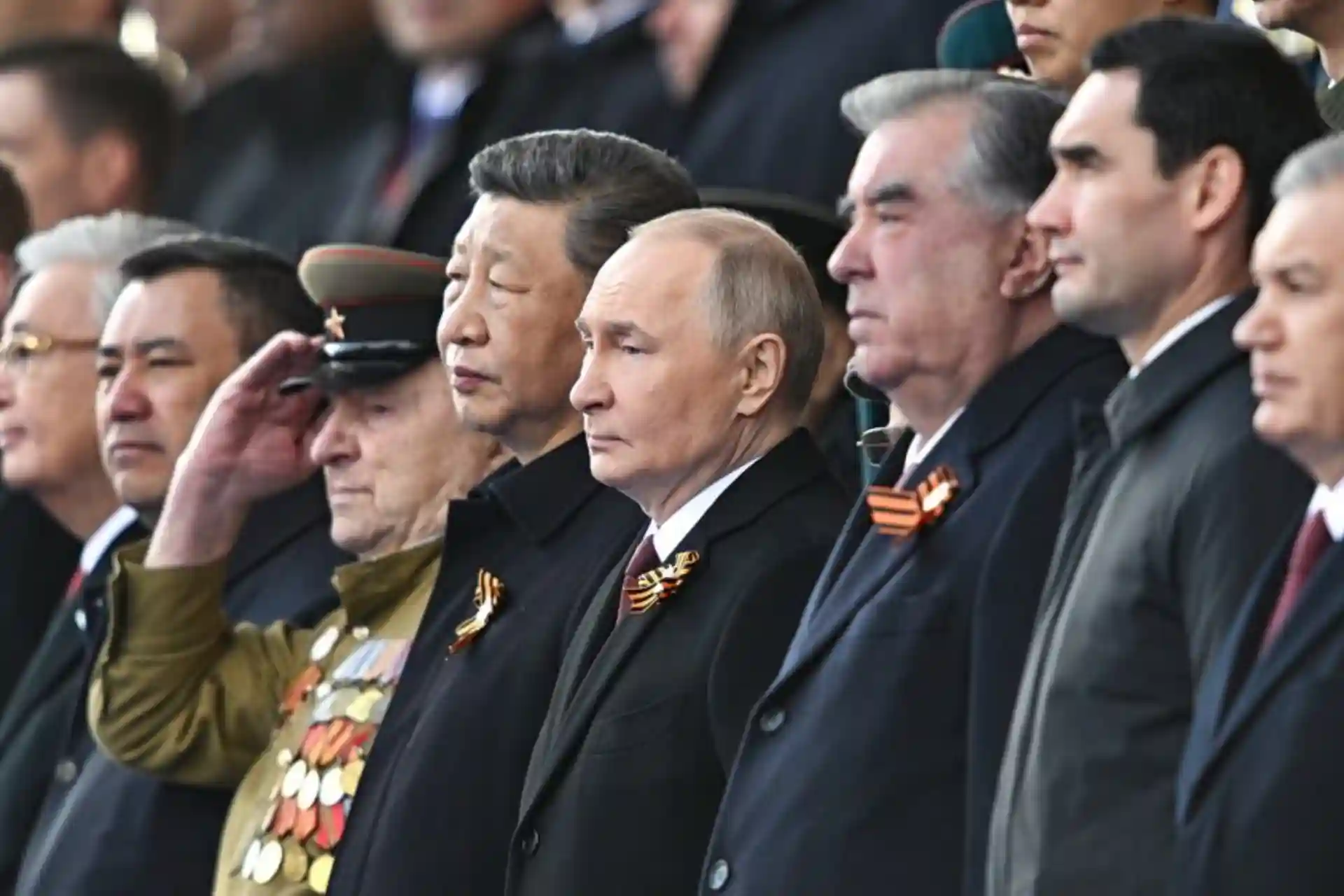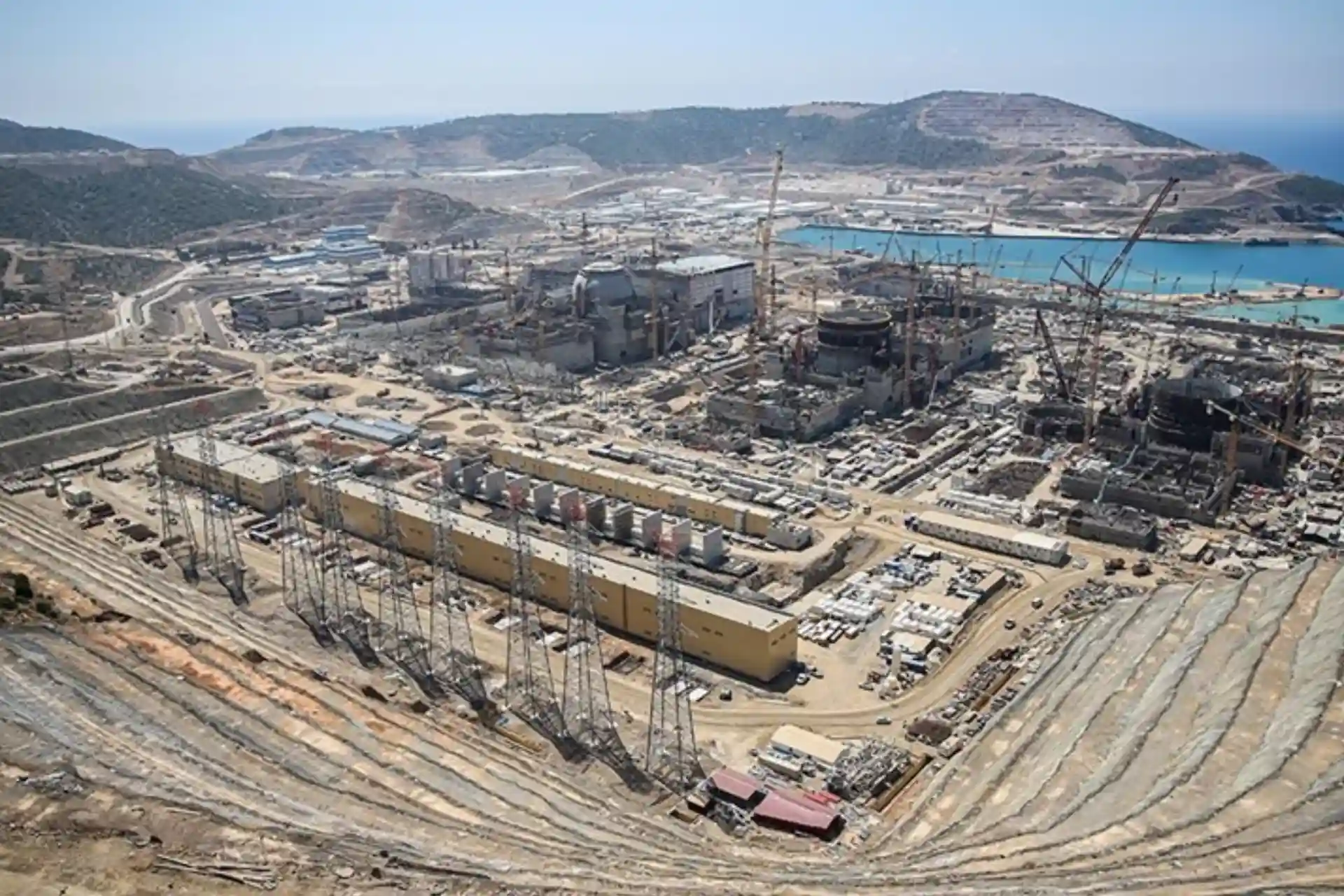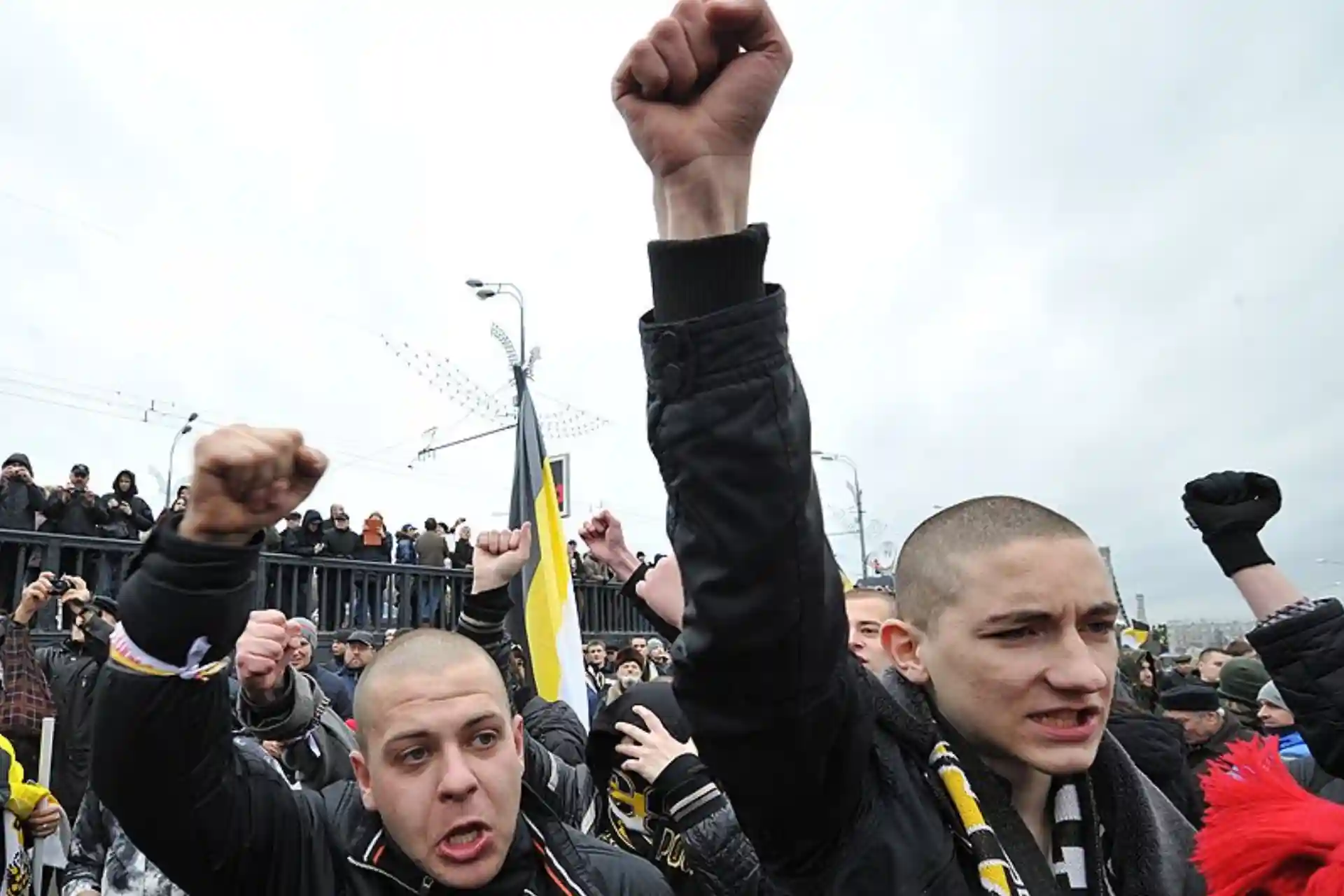09.05.2025 15:05
149
Victory Day Diplomacy: Central Asia's Balancing Politics and Putin's Shining Glory
Every year, Moscow's Red Square becomes the stage for one of Russia's most famous traditions, Victory Day, which celebrates the Soviet Union's victory over Nazi Germany in World War II. But as tanks roll down the cobblestone streets and military bands play beneath the Kremlin walls, it's safe to say that the event is taking on more geopolitical significance than historical memory.
Amid ongoing conflicts and shifting alliances, the participation of Central Asian leaders at this year's event reflects the region's delicate relationship with the Russian Federation.
But the question is: behind the glory and pomp, will Vladimir Putin find enough reason to celebrate?
Central Asia's cautious balancing policy
The participation of the leaders of Central Asian countries in the Victory Day parade is a vivid example of delicate diplomatic dance.
On the surface, their participation underscores the overall historical legacy of the Soviet era, which commemorates the contribution of the Central Asian republics to the Allied victory in World War II.
However, from a practical perspective, this indicates the maintenance of a balance that determines the region's foreign policy.
The region is located at the crossroads of global powers vying for influence in Central Asia.
While Moscow relies on historical ties and cultural commonality to maintain its influence, Beijing's economic influence continues to reshape the region's trade networks and infrastructure projects.
At the same time, as the first EU-Central Asia summit showed, the European Union is seeking to expand its influence, while the United States, which needs the rare earth elements abundant in the region, is seizing opportunities.
For Central Asian leaders, participation in the Victory Day celebrations not only recognizes Russia's historical role, but also leaves open the possibilities for economic and security cooperation.
In the changing landscape of global politics, their diplomatic strategy is based on practicality: seeking benefits from many partners, but not becoming overly attached to any one side.
How does Russia benefit from this situation?
The participation of 29 leaders from around the world, including Chinese President Xi Jinping, presents Moscow with a valuable opportunity at a time of heightened international tensions. Last year, only nine people attended.
At a time when it is isolated by Western sanctions due to its invasion of Ukraine and portrayed by the world media as being excluded from the global stage, the impression of a united front with Central Asia provides the Kremlin with an opportunity to demonstrate otherwise.
Thus, Victory Day becomes a geopolitical tool. The participation of Central Asian leaders allows Putin to send a message of common unity within Russia's historical sphere of influence.
This would demonstrate to both internal and external audiences that Moscow still has important allies, reinforcing an image of resilience despite ongoing challenges.
What is Moscow actually celebrating?
The Victory Day parade is watched by about three-quarters of Russia's population. The event evokes patriotic sentiments at a time when the state is trying to become the guardian of collective memory. But it's hard to ignore the signs of unrest behind the spectacle. Russia's invasion of Ukraine has disrupted the trade and migration flows that are at the heart of its ties.
The war also exposed the limits of Moscow's power. Sanctions weakened its economy, ultimately reducing Central Asia's dependence on Russian investment.
China, meanwhile, is rapidly emerging as a leading force in the region's economic development, diminishing Russia's influence.
In this context, Central Asian leaders are proceeding cautiously, although they are attending events in Moscow.
For example, Kazakhstan has refused to recognize Russia's annexation of Ukrainian territories. President Tokayev has stated his support for Ukraine's territorial integrity, stressing that sovereignty and territorial integrity are also of paramount importance to Kazakhstan.
This shows how complex the solidarity displayed at Victory Day parades is. While maintaining relations with Russia is important, Central Asian states are reluctant to get involved in Moscow's geopolitical conflicts.
The growing voice of Central Asia
In the so-called "New Great Game," the Central Asian states are in a stronger position than before. Their ability to build relationships with Russia and China, while simultaneously refining ties with the United States, Turkey, and the European Union, gives them additional leverage.
Regional leaders are increasingly taking a firmer stance when their sovereignty is challenged, as seen in Kazakhstan's refusal to comply with all of Russia's demands for sanctions and its cautious neutrality in the war in Ukraine.
Another proof of this is that Uzbekistan has also responded boldly by summoning the Russian ambassador in response to the ideas of far-right groups in Moscow about annexing territories.
The true essence of Victory Day
For Central Asia, the Victory Day celebrations in Moscow are more a means of defending their interests than solidarity with Russia.
By attending these events, leaders are trying to maintain a delicate balance, acknowledging a shared history while not supporting Moscow's current international actions.
This well-thought-out diplomacy allows them to maintain ties with Russia while expanding cooperation with other global powers.
For Vladimir Putin, this cautious loyalty, while not a real achievement, is essential.
Although the region's priorities have changed, Russia's influence in Central Asia has not completely disappeared.
So, at a time when Moscow is holding its grand event, large-scale events are showing the world that the former Soviet republics are increasingly raising their voices, even from Red Square.
Stephen M. Blend
About the author:
Stephen M. Blend is a journalist, writer, editor, commentator, and researcher specializing in Central Asia and the Caucasus. Before joining The Times of Central Asia, he worked for various NGOs and think tanks, and has also written for the BBC, The Diplomat, Eurasianet, and many other publications, and was a recent expert on Central Asia in a documentary series.
His 2016 book on Central Asia won the Golden Prize for Eurasian Literature. He is currently completing a book on the Caucasus.



